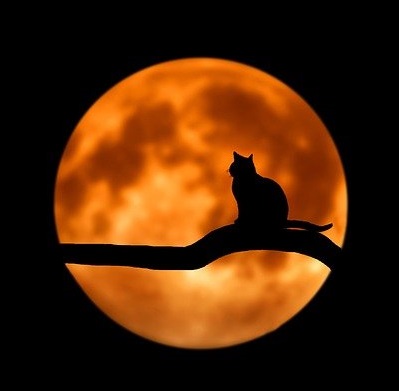Peter Dockrill, 28 Jan, 2021

In modern times, a great deal of research has focused on the way that (a) artificial light sources mess up our sleep and health, due to the unnatural effects of illumination after the Sun goes down.
But just how unnatural is night-time light anyway? After all, humans have always been exposed to (b) variable levels of light at night, due to reflections of sunlight from the waxing and waning Moon – and this shifting radiance stimulates us in ways (c) we aren’t fully aware of, new research suggests.
„Moonlight is so bright to the human eye that it is entirely reasonable to imagine that, (d) in the absence of other sources of light, this source of nocturnal light could have had a role in (e) modulating human nocturnal activity and sleep,“ a team of researchers, led by senior author and neurobiologist Horacio de la Iglesia from the University of Washington, explain in a new study.
To investigate the mystery, the researchers fitted over 500 participants with (f) wrist-based activity monitors, to track their sleep patterns, and conducted the experiment (g) in vastly different locales.
Firstly, they involved 98 participants from the Toba-Qom people, an (h) indigenous community living in the Formosa province of Argentina. Some of these (i) rural participants in the experiment had no access to electricity, others had limited access in their homes, while a final contingent lived in an (j) urban setting with full access to electricity.
Tracking the participants‘ sleep activity over the lunar month cycle, the researchers found the same kind of pattern could be seen in their sleep and waking, regardless of where the volunteers lived.
„We see a clear lunar modulation of sleep, with sleep decreasing and a later onset of sleep in the days (k) preceding a full Moon,“ Horacio de la Iglesia says.
„Although (l) the effect is more robust in communities without access to electricity, the effect is present in communities with electricity, including undergraduates at the University of Washington.“
„Together, these results strongly suggest that human sleep is synchronised with lunar phases (m) regardless of ethnic and sociocultural background, and of the level of urbanisation,“ the researchers write in their paper.
As for (n) what gives rise to these effects, the researchers contend that extended nocturnal activity stimulated by moonlight could be an evolutionary adaptation carried over from the time of pre-industrial human societies – with the ability to stay up and do more under a brilliant full Moon benefitting all kinds of traditional customs still enjoyed by peoples without electricity today.
(o) According to interviews with Toba/Qom individuals, moonlit nights are still known for high hunting and fishing activity, increased social events, and heightened sexual relations between men and women.
„This finding, in turn, suggests that the effect of electric light on modern humans may have tapped into an ancestral regulatory role of moonlight on sleep.“ (Zkráceno. Plná verze zde)
Match the following expressions with the underlined phrases:
- a measuring contraption strapped around their hand
- the fact that some nights are darker than others
- in a modern city
- lightbulbs and pc screens
- because it is the only shining thing around
- why it happens
- we don´t really know about
- as the savages told us
- in very different places
- an Indian tribe
- peasants
- before
- it happens more to the primitive villagers
- no matter where you are from
- changing the way we act and sleep
Podobnými, ba ještě zajímavějšími úkoly rozmazluji studenty na svých online hodinách jazyků zcela běžně. To jen kdyby to někomu dnes nestačilo.


